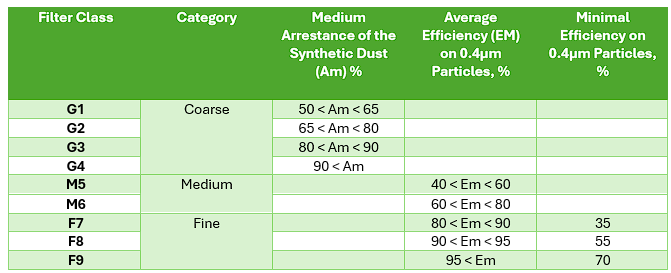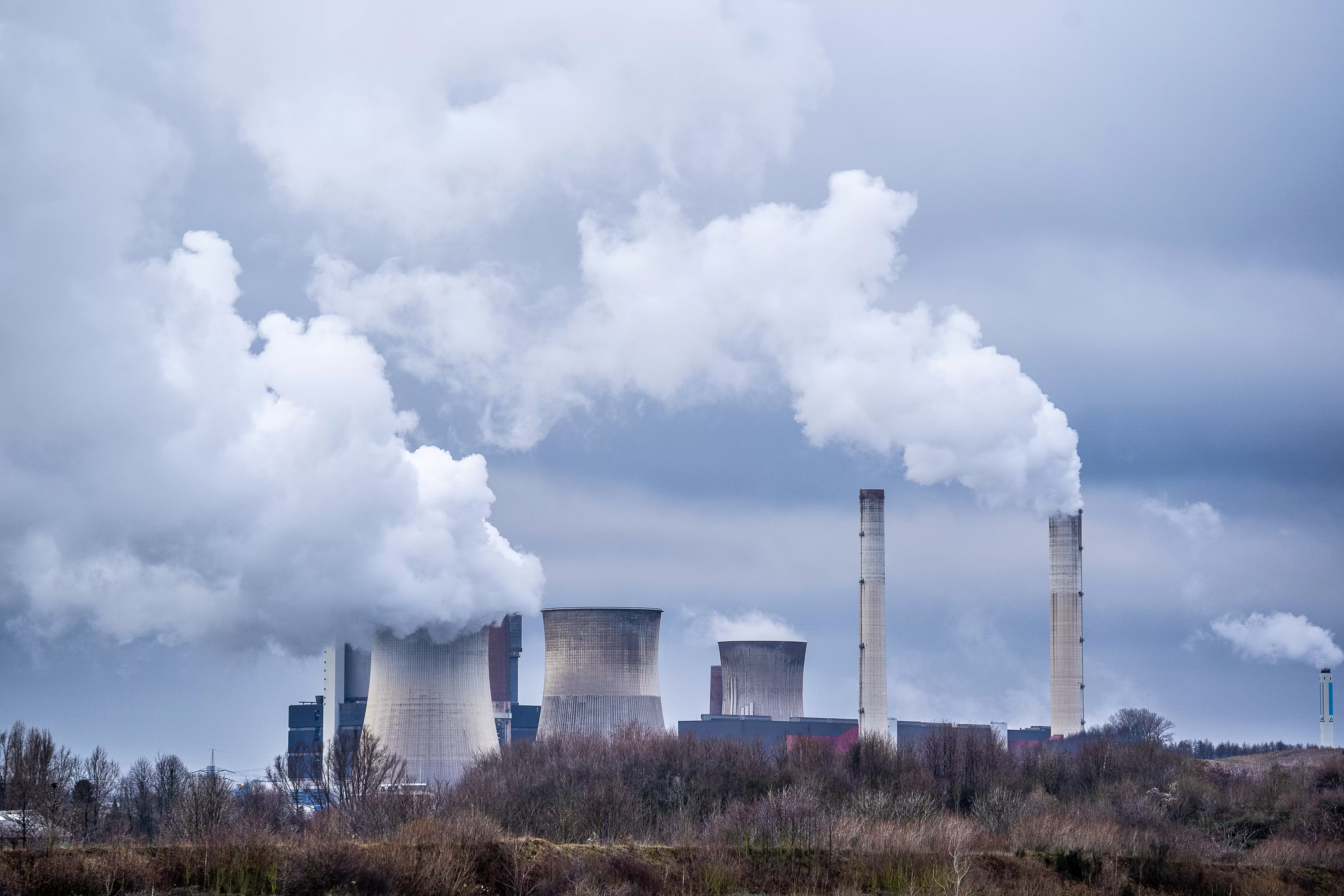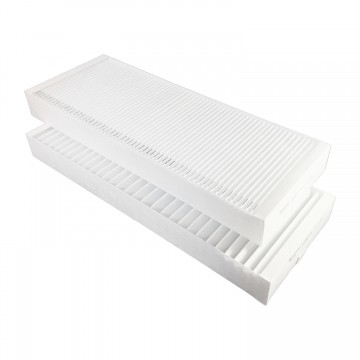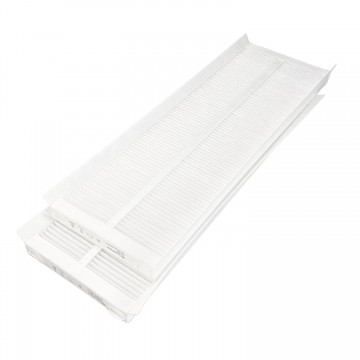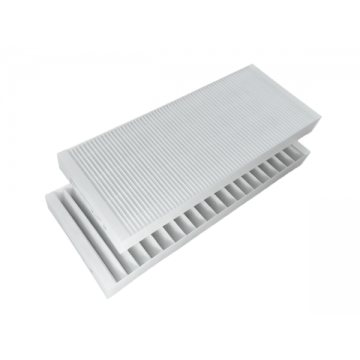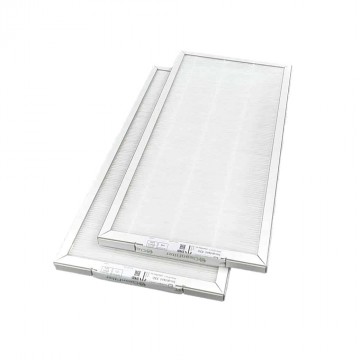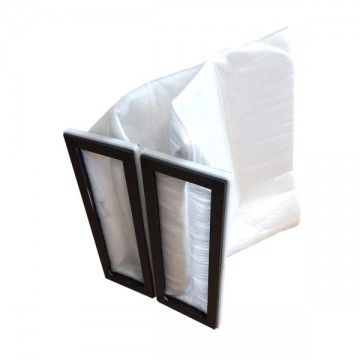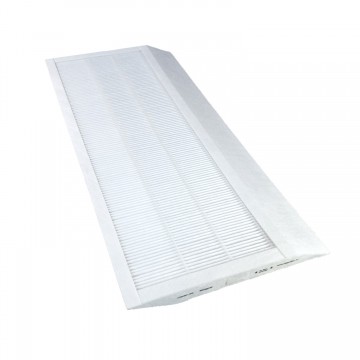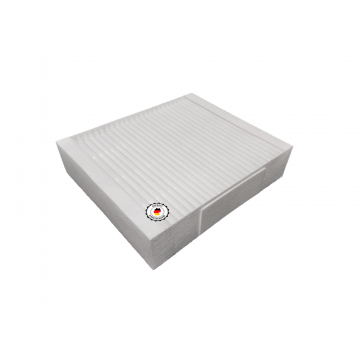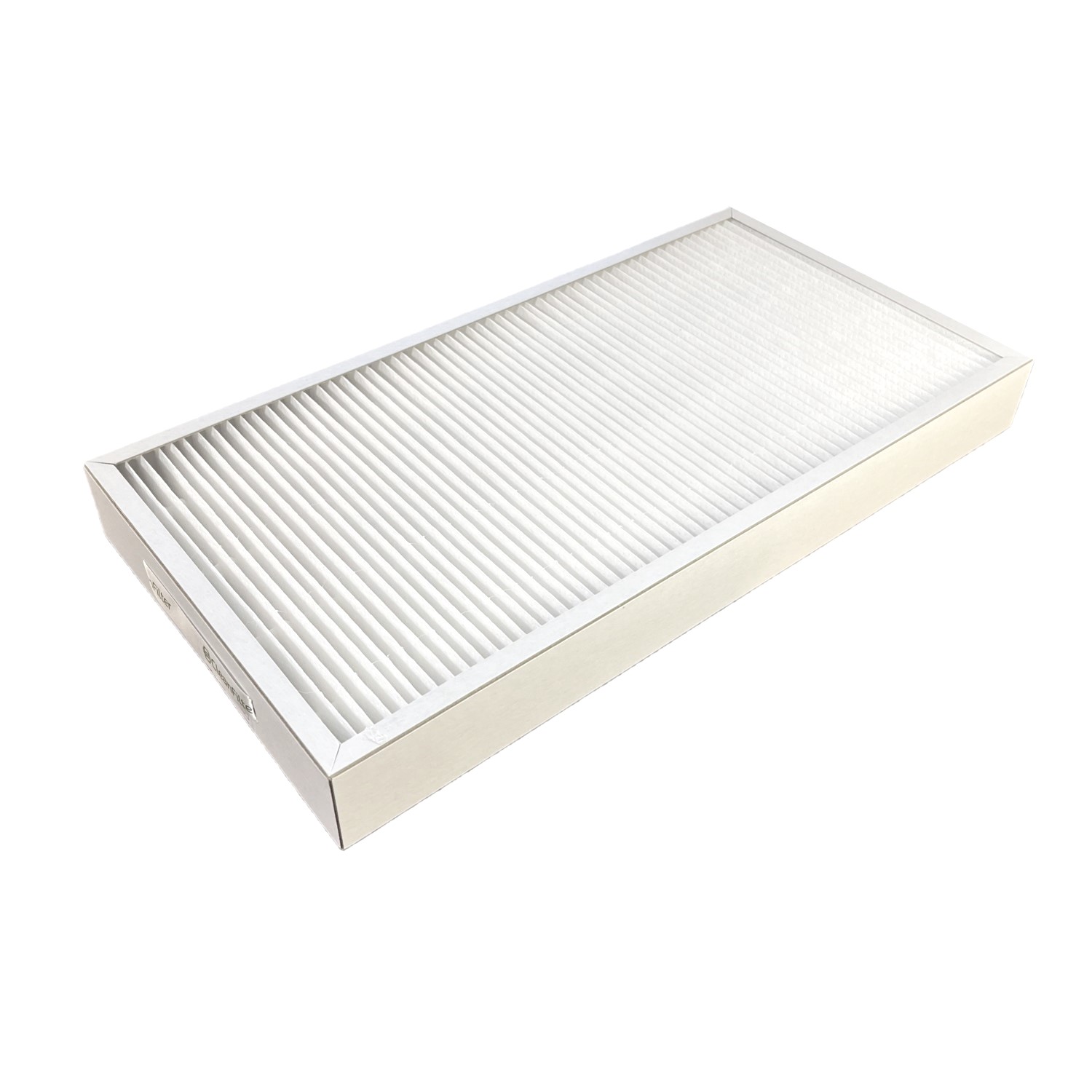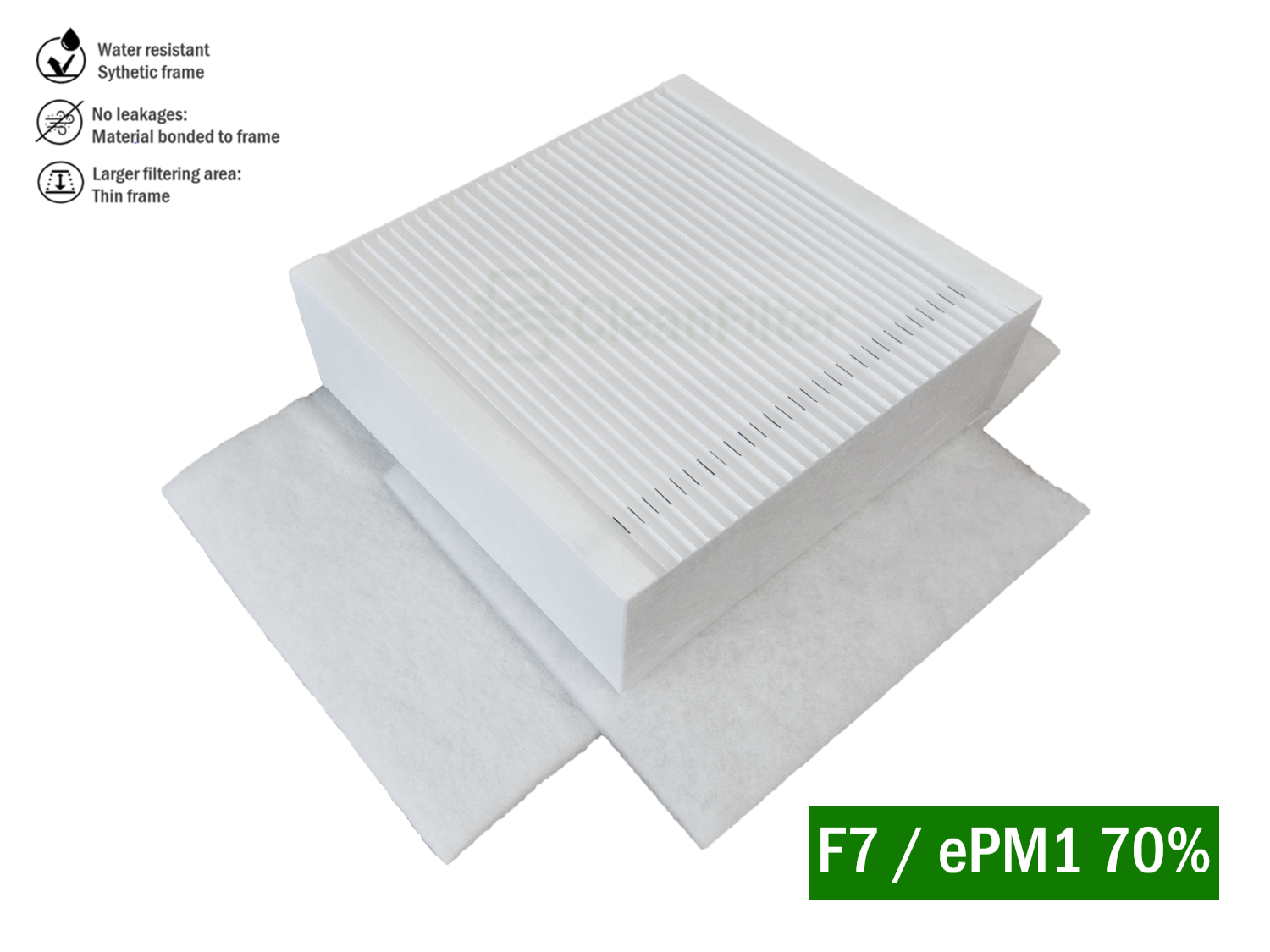SELECT VENTILATION UNIT
- BRINK
- BLAUBERG
- BROFER
- ENSY
- FLEXIT
- KOMFOVENT
- OXYGEN
- PAUL
- SYSTEMAIR
- VALLOX
- WOLF
- ZEHNDER
- AIR VALVES AND MATERIALS
- 2VV
- AERAULIQA
- AERIS
- AIROBOT
- ALDES
- ALNOR
- ASPIRA
- BLUMARTIN
- DANFOSS
- DAIKIN
- DANTHERM
- ELECTROLUX
- GENVEX
- FRÄNKISCHE
- HOLTOP
- HYUNDAI
- HELIOS
- IVT/Bosch
- JOULE
- KERMI
- LINDAB
- LG
- LUNOS
- MAICO
- MITSUBISHI
- NILAN
- PANASONIC
- NIBE
- PRODMAX
- PICHLER
- PRO-VENT Filters
- PLUGGIT
- REQNET
- RECOM
- RENSON
- SABIANA
- SALDA
- SAMSUNG
- SIBER
- SOLER & PALAU
- STIEBEL ELTRON
- VASCO
- TITON
- VAILLANT
- VENT-AXIA
- VENTS
- VORTICE
- VIESSMANN
- ALL FILTERS
- ÖSTBERG
Categories
New posts
-
date_range 13 January 2025Read More
Regular filter replacement is essential to maintain the efficiency of your MVHR (Mechanical Ventilation with Heat Recovery) unit, reduce energy consumption, and extend the life of your ventilation system. While changing filters is a simple task, manufacturers often provide only basic instructions, leading to common mistakes.
-
date_range 16 December 2024Read More
Coarse filters capture larger particles like dust and sand while ensuring low airflow resistance, quieter operation, and energy efficiency. Ideal for ventilation systems, they extend filter lifespan and protect HVAC components. CleanFilter Coarse filters offer premium materials, high dust-holding capacity, and certified performance for cleaner indoor air.
-
date_range 09 December 2024Read More
Filters in the ePM10 class must capture at least 50% of PM10 particles (0.3–10 μm) during testing. For instance, a filter rated as ePM10 55% captures more than 55% of PM10 particles. The term "ePM" stands for Efficiency of Particulate Matter.
These filters are especially useful in areas with high PM10 pollution and can trap allergens like pollen, improving indoor air quality.

